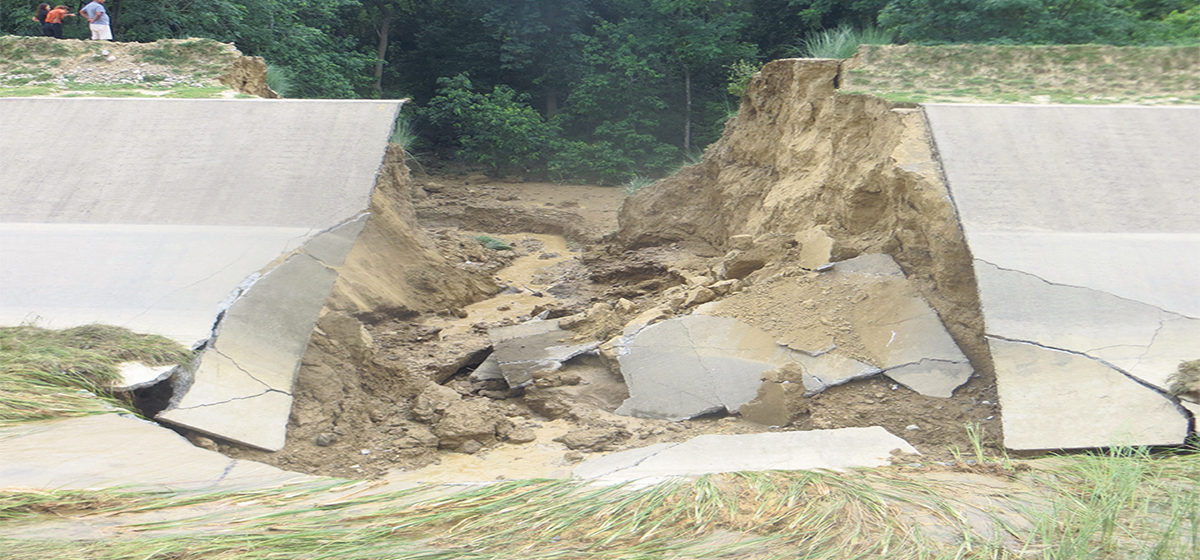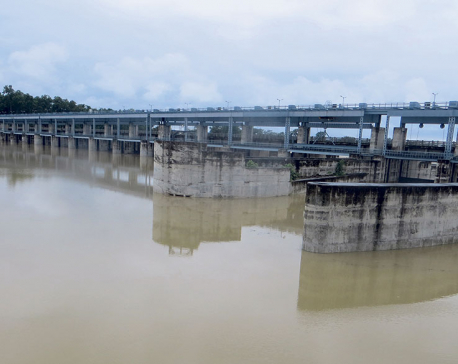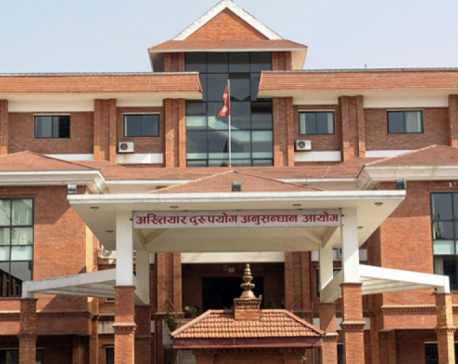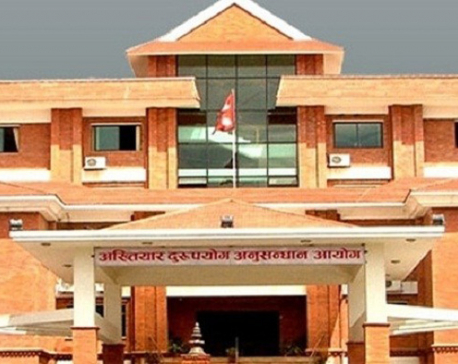
OR
Editorial
Shame! Sikta and the 'Guilty Soil' Verdict
Published On: February 28, 2023 07:30 AM NPT By: Republica | @RepublicaNepal

The full text of the Special Court’s verdict on the case filed by the CIAA claiming corruption and financial irregularities leading to substandard work in the Sikta Irrigation Project is bizarre, incredibly disappointing, and appears to be a gross miscarriage of justice. In what can only be described as a shocking turn of events, the court has deemed the dissoluble soil in the project area responsible for the failure of the project! The conclusion of the court’s verdict is nothing short of outrageous – “The soil at the project site is of dissoluble type. It easily gets dissolved when it comes in contact with water and therefore, the major reason behind the collapse of the canal is the dissoluble type of soil. Such a quality of soil cannot be identified with the naked eye. So, it cannot be said that the problem of soil quality was ignored even after it was known.”
The construction of the Sikta Irrigation Project began in 2004, with the aim of irrigating around 43,000 hectares of the arable land in Banke district. The country spent nearly 14 billion rupees and close to two decades on this project. However, the project suffered major setbacks when the main canal was heavily damaged at various sections of a 5-km segment of the 45km channel in June 2016 and July 2018 during test runs. During the first test run of the newly built canal in June 2016, it collapsed at multiple sections. The contractor, Kalika Construction, repaired the canal, but it collapsed again in July 2018 during another test. The main canal was designed to hold 50 cubic meters per second (cumec) of water, but it collapsed during testing with only 4 cumec released. The repeated collapses of the canal raised questions about the quality of work at the national pride project. Consequently, the CIAA filed a case of corruption, claiming that financial malpractice and corruption were behind the project's failures.
Clearly, the blame placed on the dissoluble soil is a feeble attempt to shift responsibility away from those who were truly responsible for the project's failure. Shouldn’t the contractor or the employees of the project be held accountable for this abject failure? What about those who carried out the feasibility study of the project? The court has shockingly ignored these questions. And, by putting the blame on the soil which obviously cannot defend itself, the court has effectively let all others involved in the project off the hook, thus denying the nation justice for the great loss suffered. This verdict sends a dangerous message that those in positions of power can evade accountability for their actions, even when their incompetence results in a significant loss for the nation. It is imperative that the court's decision is challenged and that those responsible for the project's failure are held accountable for their actions. The nation deserves better than a flimsy excuse blaming the soil for the collapse of a project that was meant to bring prosperity and progress to the region.
Soil testing is an essential requirement before starting any significant construction project, such as highways, canals, buildings, and hydropower projects worldwide. This testing provides valuable information about the soil's nature in the project area, which forms the basis for engineering designs. However, blaming a particular soil type for project failures is not a viable approach as it could hinder construction worldwide. For instance, China has been able to carry out remarkable development works on the rugged Tibetan plateau despite the challenging soil conditions. Similarly, Arab countries would not have been able to build cities with high-rise buildings and skyscrapers if soil types posed insurmountable obstacles. Therefore, while soil testing is crucial, it is not the sole determinant of a project's success or failure. Other factors such as engineering designs, quality control, and construction management also play critical roles.
In fact, the CIAA had clearly said while filing the case – '...the main canal of the Sikta Irrigation project under construction in Banke district collapsed because of a design fault, and corruption was committed by carrying out substandard construction work.' The CIAA has claimed that the multibillion rupees project was designed and construction of the project was started without carrying out a detailed study of the project area by the consultant of the project such as the nature of the dissoluble soil and a proper exit to the rain water during monsoon.
However, the irony is that nobody has been held accountable for this monumental failure, which resulted in the waste of the state's scarce resources and time. Rather than being a source of national pride, Sikta has become a matter of significant national shame.
You May Like This

Will Kalika and its Chinese partner, consulting firm be chargesheated?
KATHMANDU, Dec 10: Commission for the Investigation of Abuse of Authority (CIAA) has filed case against only main officials of... Read More...

CIAA files case against section officer who registered govt land in name of individual
KATHMANDU, March 21: The Commission for the Investigation of Abuse of Authority (CIAA) has filed a case against a section... Read More...

CIAA files charge-sheet against Division Road Office chief
KATHMANDU, Oct 8: The Commission for the Investigation of Abuse of Authority (CIAA) on Sunday filed a case at the Special... Read More...



Just In
- World Malaria Day: Foreign returnees more susceptible to the vector-borne disease
- MoEST seeks EC’s help in identifying teachers linked to political parties
- 70 community and national forests affected by fire in Parbat till Wednesday
- NEPSE loses 3.24 points, while daily turnover inclines to Rs 2.36 billion
- Pak Embassy awards scholarships to 180 Nepali students
- President Paudel approves mobilization of army personnel for by-elections security
- Bhajang and Ilam by-elections: 69 polling stations classified as ‘highly sensitive’
- Karnali CM Kandel secures vote of confidence















Leave A Comment